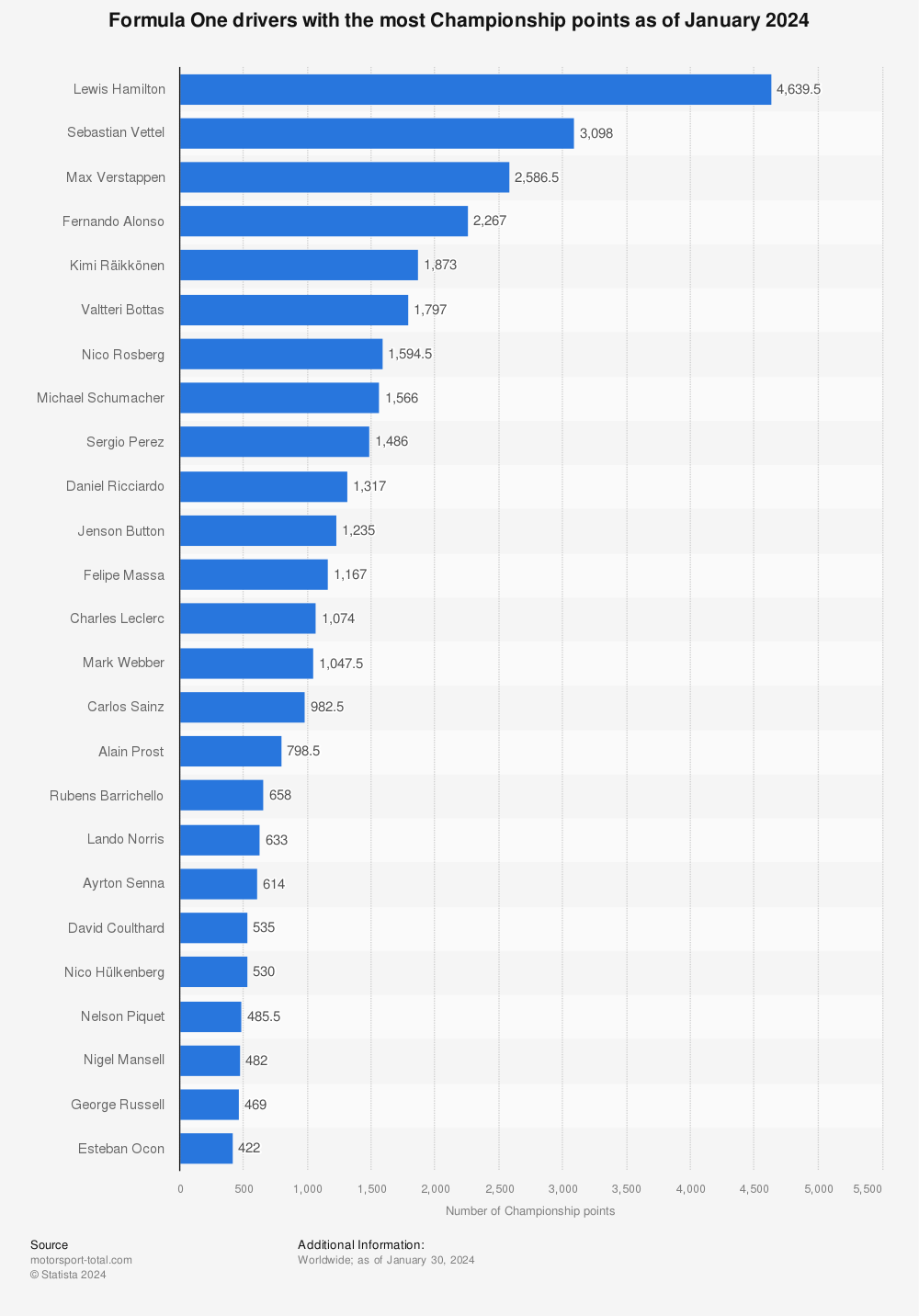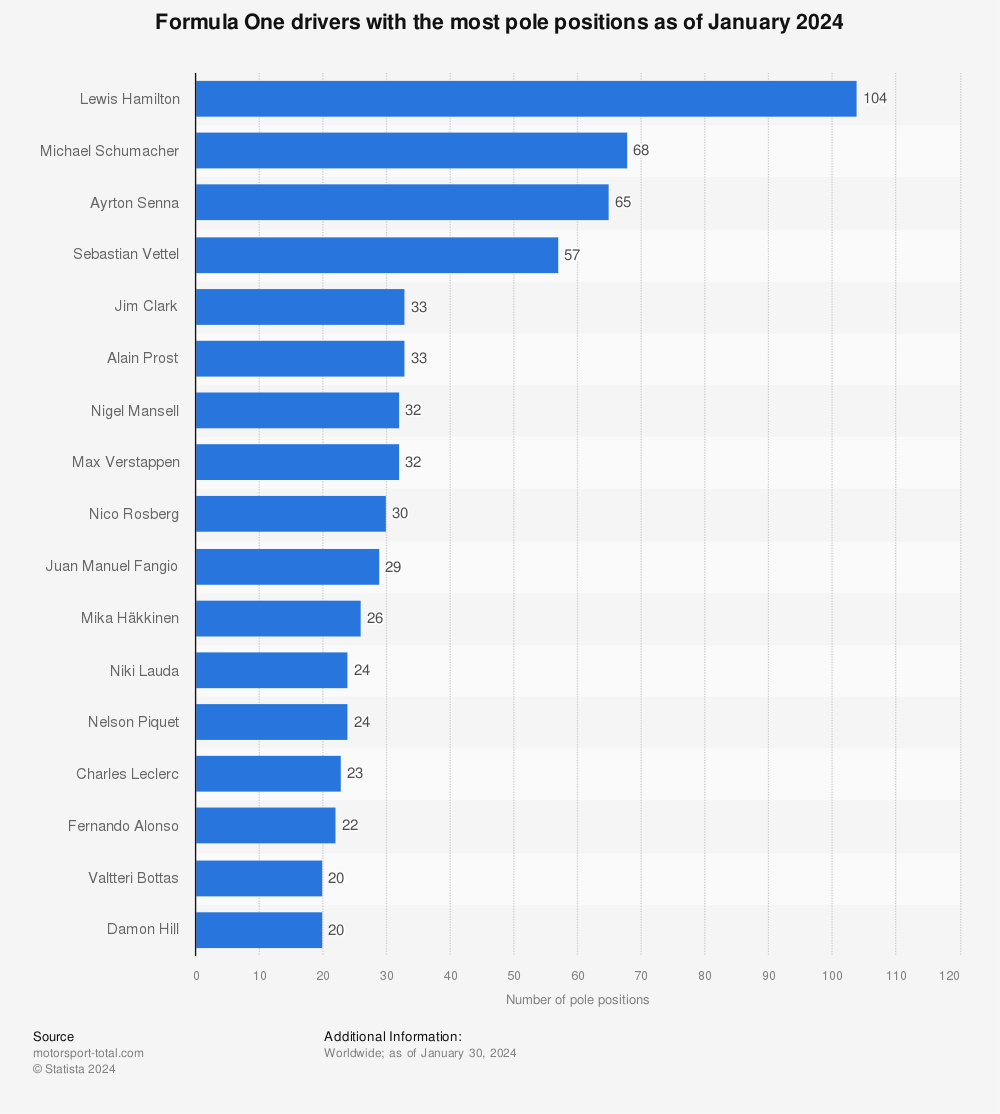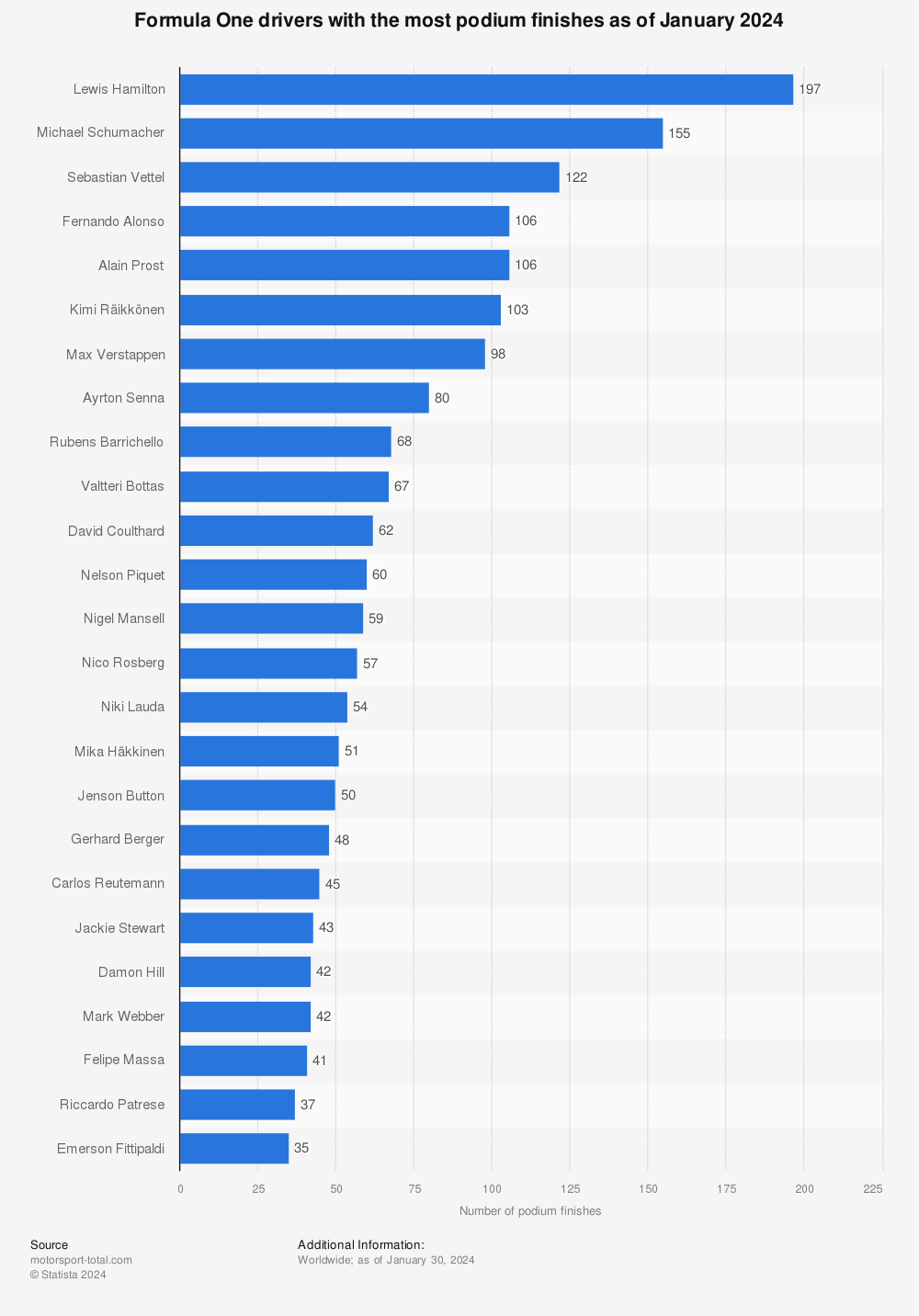Long after a driver’s speed has left and reflexes quite aren’t as sharp as they once were, entries in the record books are the most enduring legacy one can leave behind. It’s one of the biggest motivating factors in any competitive endeavour, how the record stands can show future generations that you were the greatest.
The 1950-2014 records showcase the dominance of Mercedes’ 2014 campaign, with incredible movements for one season. The prominence of Mercedes, Lewis Hamilton and Nico Rosberg’s achievements mask some of the other notable movements among the rest of the grid, but they are there nonetheless.
As with any set of data covering such a long range, one has to be mindful of variables. Varying season lengths, different points systems and other variables mean that one should be very careful when comparing drivers across eras, nevertheless it is worth taking a look at how this year affected the 1950 – 2014 F1 records.
Most Career Wins
1. Michael Schumacher (1991 – 2006, 2010 – 2012) – 91 wins from 308 starts
2. Alain Prost (1980 – 1991, 1993) – 51 wins from 202 starts.
3. Ayrton Senna (1984 – 1994) 41 wins from 162 starts
4. Sebastian Vettel (2007 – Present) 39 wins from 139 starts.
5. Lewis Hamilton (2007 – Present) 33 wins from 148 starts.
6. Fernando Alonso (2001, 2003 – Present) 32 wins from 236 starts.
7. Nigel Mansell (1980 – 1992, 1994 – 1995) 31 wins from 191 starts.
8. Jackie Stewart (1965 – 1973) 27 wins from 100 starts.
9 & 10 Jim Clark (1960 – 168) 25 wins from 73 starts, Niki Lauda (1971 – 1979, 1982 – 1985) 25 wins from 177 starts.
One of the biggest stories among the top ten was Hamilton overtaking Clark, Stewart and Mansell to become the most successful British racing in history. Hamilton also pushed Alonso out of the top five, becoming the second most successful active driver, and moved to well within of striking distance of Vettel. If Mercedes continue to dominate in next year, Hamilton is well placed to become the most successful of the active drivers, and even move past Senna to become the third most successful driver of all time.
Outside of the top ten, Rosberg’s efforts moved him up to equal 34th with eight career victories.
Most Wins in a Season
13 Wins – Michael Schumacher (2004) Sebastian Vettel (2013)
11 Wins – Michael Schumacher (2002), Sebastian Vettel (2012), Lewis Hamilton (2014)
9 Wins – Michael Schumacher (1995, 2000, 2001), Nigel Mansell (1992)
8 Wins – Michael Schumacher (1994) Ayrton Senna (1988), Damon Hill (1996), Mika Häkinnen (1998)
Hamilton’s third place on this list shows how closely the double-points system came to going from a forgivable error in judgment, to a permanent smudge on the record books.
Each of the drivers listed won the World Championship in the year they achieved those wins. With Lewis Hamilton coming in third for all time race wins and Rosberg failing to crack the top ten, taking the Championship on account of double-points would likely be more of a burden for Rosberg than anything else.
Different points systems throughout the years that direct comparisons can’t be made, but it is an interesting record to look at nonetheless. Alonso remains at the top of the table, although Vettel closed the gap by seven points from this time last year. While the gap between the two changed little, Vettel moved one place past Schumacher to take second place.
If the graph tracked activity on the stocks then the mover of the market would be Rosberg. Starting the season with an accumulated 570.5 points, Rosberg added 317 points to increase his career tally by 55 per cent.
While Vettel didn’t trouble the record keepers, Hamilton moved past the likes of Jim Clark (33), Alain Prost (33) and Nigel Mansell (32) to claim 4th place overall and first among his countrymen.
Rosberg’s rise in the records is again meteoric, immediately moving past the likes of Jack Brabham (13), James Hunt (14) and Alberto Ascari (14) to take 20th place by achieving pole a total of 15 times. Prior to this year Rosberg didn’t even figure in the top 30, having achieved pole on just four previous occasions. Felipe Massa’s sensational pole in Austria puts him one place ahead of Rosberg, having achieved pole 16 times.
The first thing one notices is that Schumacher’s spot in number one is safe for the next few years at least. The closest active driver is Alonso, needing 60 podium finishes to claim equal first. Vettel, the ultimate stats-man, needs 90 podiums to take top spot while Hamilton would require 101.
In claiming his second World Drivers’ Championship, Hamilton took a podium spot in 16 Grands Prix, pulling out from just behind Mark Webber (39) to move past names including Jackie Stewart (43) and Gerhard Berger (48), to sit equal 11th with Niki Lauda in achieving 54 career podiums. (Correction: Thanks to Dan and Yos for pointing out in the comments that Hamilton started 2014 with 54 podiums, and finished in 6th overall with 70 podiums.)
Felipe Massa also moved up, with his podiums in Italy, Brazil and Abu Dhabi putting him just above Riccardo Patrese (37) to take 20th with 39 podiums.
Of course there are mountains of records once could also consider. These particular stats are some of the most useful in demonstrating achievements since 1950, and sets the stage for interesting achievements and milestones next year.
Thank you for reading. Please take a moment to follow me on Twitter – @SimonODea. Support LWOS by following us on Twitter – @LastWordOnSport and @LWOSworld– and “liking” our Facebook page.
Interested in writing for LWOS? We are looking for enthusiastic, talented writers to join our Formula 1 writing team. Visit our “Write for Us” page for very easy details in how you can get started today!
Have you tuned into Last Word On Sports Radio? LWOS is pleased to bring you 24/7 sports radio to your PC, laptop, tablet or smartphone. What are you waiting for?








